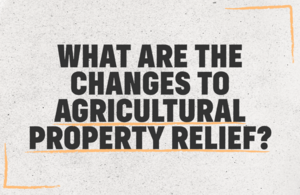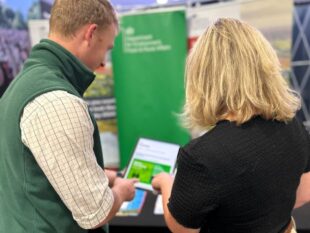As we said in our previous post, a land management plan brings together various pieces of information including maps, field records and details of how the land is managed.
Farmers and land managers can use them to record environmental changes on their land.
Through tests and trials, we wanted to understand the role they could play in our future schemes. In the Sustainable Farming Incentive pilot, we provided farmers with 3 different land management plan templates.
Each template was developed through tests and trials. The Cuckmere and Pevensey test and trial group developed one of those templates.
Martin Hole, a farmer who took part, explains how the vision for his farm, and the landscape in which he lives, has been supported by land management planning.
The Cuckmere and Pevensey land management plan template brings together a baseline map showing:
- actions undertaken on the farm
- a planning map showing future environmental actions
- information about the farm and its future
- tables setting out what will be done as part of environmental land management.
The group particularly liked the table structure of this template. They found it simple and easy to use.
Subscribe to the blog so you don’t miss the final instalment in our land management plan series.
Many thanks to Martin for appearing in this film.




 The
The 
4 comments
Comment by Tony Powell posted on
How good was that? Oh, so informative. Martin Hole reminds me of Henry Edmond's approach at Cholderton, but from markedly different habitat types. Who needs those celebrity types when people like Martin have so much passion themselves. Let's get something as informative as this on the Beeb so that for once the general public starts to realise the farming community has an equal amount of respect and love for our farmed and non-farmed environment.
Comment by Tam Mayor posted on
Agree Tony, inspiring work happening which should be encouraged and embraced as widely as possible.
Comment by Philip Merricks posted on
I fully agree with the two comments above. Very well done Martin. I have two questions re Martin’s blog which I think can best be and indeed should be answered by Defra and/or Natural England as his blog is posted by Defra on their own website. (1) Martin makes the point that his farm, first of all, has to make a profit to enable sustainability and goes on to say that what has underpinned the economy of his farm has been payments from his Countryside Stewardship agreements and from his Single Farm Payment (SFP). Agricultural economists calculate that profit from a lowland sheep and suckler cow farm will approx equate to the SFP. So what will happen to the economy of Martin’s farm, which financially enables his conservation work to continue, when the SFP is very soon is completely abolished? And hence how will Martin be able to afford conservation management when his farm makes zero profit? (2) Martin makes the point that, very understandably, he is moving away from his costly focus on conservation management that encourages and protects ground nesting birds to a less prescriptive and less interventionist approach to conservation. As Martin is about the only farmer on the Pevensey Levels whose farm retains any breeding waders and other ground nesting birds, does that mean that there will shortly be no breeding waders such as the iconic Lapwing on the marshes at Pevensey , a lowland that was once famous for these and other ground nesting birds? Have Natural England given up on the conservation of ground nesting birds which are best described as Meadow Birds?
Comment by The Team posted on
Hello,
To meet our challenging targets we need at least 70% of farmers to be undertaking environmental land management by 2027; from around 40% now. To do that we need the schemes to work for their businesses including to be profitable. Last year we published a set of payment principles which described our approach to payments: https://www.gov.uk/government/publications/environmental-land-management-schemes-payment-principles/environmental-land-management-schemes-payment-principles
In 2019 we set out many of the ways in which farmers can respond to the removal of direct subsidy. These include improved productivity, reduced costs, improved health, greater focus on market requirements and others. We recognise this is a significant change which is why we have made available free business advice to support farmers through this transition, through the Future Farming Resilience Fund.
You might find this document of interest: https://www.gov.uk/government/publications/the-future-farming-and-environment-evidence-compendium-latest-edition
Best wishes,
The Team